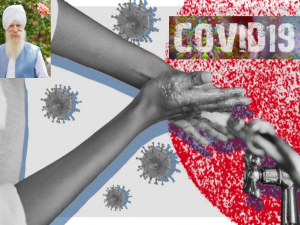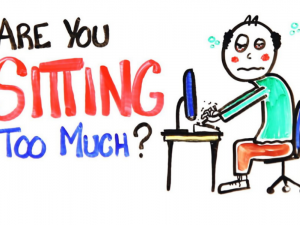Study Reveals:
What's Really Causing Your Food Cravings?
How to Resist the Urge Using Healthy Behavior Replacements
As you prepare for the extra guests, the cheer and the extra large holiday meals, you’re probably thinking of ways to NOT put on more weight and how to lose those five to ten extra pounds you gained over the last winter holidays. Most people find it challenging to stick to a healthy diet and oftentimes exacerbating the challenge are insatiable food cravings.
If you formulate a plan to overcome those cravings before they happen you can be prepared to welcome the holidays -- and the upcoming season of fruitcakes and sweets -- without guilt or added extra pounds.
How are Cravings Triggered? How to Distinguish if it’s Hunger or a Craving When you’re hungry you’ll eat just about anything to satisfy your hunger pains. But when a food craving strikes, you yearn for something very specific such as chocolate-covered pretzels, cheese and sour cream potato chips or Neapolitan ice-cream sandwiches -- and ONLY that “something” will do to satisfy your urge.
For some people food cravings are a harmless, every now and then occurrence that they can control, but for others cravings act as an instant trigger that leads to more serious issues. Among them, food cravings can lead to binge-eating episodes that cause psychological problems including depression and physical ailments such as obesity, insomnia and heart disease. Food cravings can also trigger eating disorders such as bulimia nervosa.
Past studies on food cravings link them to defective workings in your brain, particularly low serotonin levels (the hormone that regulates your mood and is responsible for feelings of pleasure and relaxation) that trigger carbohydrate cravings. Other studies connected mental imagery to food cravings, showing that once we get a specific image of a food in our head, we want it so intensely that it becomes disruptive to our brain power, consuming our thoughts to the point where we find it difficult to focus on other tasks.
Using Your Brain Power to Overcome Food Cravings
A new study published in Current Directions in Psychological Science, a journal of the Association for Psychological Science, is using the link between imagery and cravings in the opposite direction by using cognitive tasks as a way to curb food cravings.
In other words, researchers reasoned that since a mental image of a food was enough to trigger a craving, and that mental image was enough to distract your brain to the extent> that you had trouble functioning without giving in to the craving, the opposite may also hold true -- and focusing your brain on other images may help you overcome the craving.
The study involved using images of common sights including:
- Forming images of rainbows or imagining the smell of eucalyptus when a craving came on
- Watching a flickering pattern of black and white dots on a monitor (similar to an untuned television set) when the urge for a craving was felt
In both situations there was a reduction in cravings and a decrease in the vividness of craved-food images.
Participants were also asked to visualize highly desired foods such as pizza or chocolate in their heads while they watched a dynamic visual noise display. These displays also reduced the vividness of the craved images in the participants’ minds and reduced their level of cravings.
According to the researchers, these findings reveal a new way to cut down cravings by practicing these simple visual tasks when food cravings surface. Engaging in even a simple visual task - or otherwise distracting your mind from the tasty mental image in your head -- may be enough to help curb food cravings.
The Emotional Component of Food Cravings
Junk food cravings are often triggered by emotions, such as a need to feel good or to be comforted. Stress, depression, boredom, and loneliness can also lead to cravings and many use food as a way to fulfill such feelings. It is important to consider and ask at your next appointment about ways of balancing the major neurotransmitters, including serotonin and dopamine that afect several types of cravings including food and cigarette cravings.
Other psychological factors that drive cravings are:
- Going on a Diet — Most people who go on a diet experience a sense of deprivation when they make certain foods off-limits. This usually intensifies cravings on the very foods you are trying to keep out of your diet causing you to give in and binge on those “forbidden” foods. It’s typically best to practice moderation in these cases, allowing yourself a small portion of a favorite food occasionally so you don’t feel deprived or neglected. Additionally, if you're prone to overeating it could be related to a compromised gut lining. Natural supplements may help support the lining of your gut and normalize your appetite.
- Habits: Eating Snacks Becomes Second Nature—
When something is a part of your everyday diet or meal ritual, it becomes a habit. For example you may have been served dessert after dinner each night while you were growing up. Now as a result, when you don’t eat something sweet right after dinner, chances are you’ll crave it -- unless you replace the habit with a NEW ritual, like reading a book or going for a walk after dinner instead. - Visual Associations and Trigger Activities—Since most cravings are set off in your mind it’s common for mental associations to trip those triggers. This could be passing by your favorite ice-cream place on the way home from work and craving a strawberry shake with whipped cream or seeing a billboard for McDonald’s and craving a Big Mac sandwich. Certain activities also carry strong associations with cravings. Thoughts of watching a movie can immediately conjure up the craving for salty popcorn and chocolate candy, for instance, so you’ve got to learn your triggers and avoid them as much as possible.
More Healthy Alternatives and Behaviors to Cure Your Cravings
As summer passes and fall Holiday dinners approach with all the fixings including pies, and desserts loom around the corner you can begin to prepare yourself now with simple ways to avoid cravings. With the help of the healthy alternatives and activities below, you’ll be able to ward off your cravings and feel better about yourself physically and emotionally.
1. Don't go for long periods without eating
Skipping meals, working through lunch or simply not eating when you’re hungry are all dangerous behaviors that often lead to binge eating. Your body becomes so hungry that it goes into an extreme hunger state and causes you to crave junk foods as a quick-fix to stave off the hunger. Your best bet is to eat smaller meals throughout the day along with healthy snacks to avoid binge-eating episodes and junk food cravings.
2. When your body craves the carbs, fill it with healthy ones
Instead of putting high-fat and high-sugar carbs into your body when you feel a craving coming on, nourish it with high quality lean protein, beans, fruits and vegetables, and a portion of healthy grains. These will provide you with nutritional content and satisfy your carb craving. You can also make your carbs healthy with some simple substitutions. For your grilled cheese, use whole-wheat bread instead of white or eat some yogurt in lieu of ice-cream. Pack up some healthy carbs, like fresh fruit, raw unsalted almonds, celery sticks with almond butter or a veggie- hummus wrap for times when you are on the go.
3. Keep a journal of your food triggers
Jot down any patterns you notice with your food triggers in a journal. Be specific and write down when it happened, what you ate, the emotion you were experiencing at the time and how you felt after giving in to the craving. After keeping the journal for about a month, go back and read through it to find some patterns, triggers and emotions that set off your cravings.
4. Be in the moment when you sit down to eat
This means not eating in front of the TV and instead really focusing on the smells and the experience of your meal. Take three breaths between bites and practice mindful eating. By doing this you will start to develop an awareness of the feelings and emotions you associate with food and the act of eating. Keep a list of non-food activities that you can quickly turn to as well when you feel a food craving coming on. Here is a list of some healthy activities you could nurture your body with instead:
o Take a spa day for yourself and get a facial, massage or pedicure
o Call a friend to meet for a cup of coffee
o Immerse yourself in a good book or magazine
o Pick out a movie you’ve been wanting to see and go see it
o Enjoy the outdoors by taking a brisk walk or a hike on your favorite trail
o Exercise: a good workout is often one of the best quick-fixes for a craving
_______________________________________________________
Sources
Current Directions in Psychological Science 2010 19:86
Association for Psychological Science
The Healthy Place
Web MD The Facts About Food Cravings
Mayo Clinic






